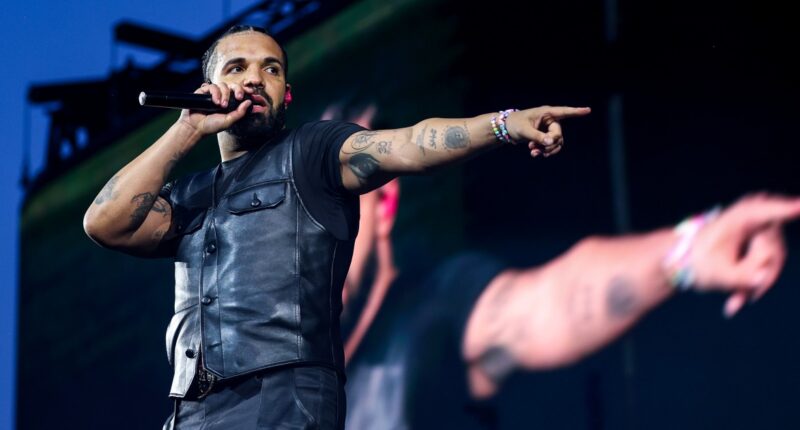Share this @internewscast.com
A federal judge has dismissed Drake’s defamation lawsuit against Universal Music Group over Kendrick Lamar’s hit diss track “Not Like Us.”
The decision marks the conclusion of a heated legal battle between Drake and Lamar, which dominated much of 2024 with both artists releasing numerous tracks targeting each other.
In January, Drake, whose full name is Aubrey Drake Graham, took legal action against his record label in the U.S. District Court for the Southern District of New York. He accused UMG of defamation for promoting the song “Not Like Us,” which includes lyrics suggesting Drake is a pedophile. Although Lamar was not named as a defendant in the lawsuit.
UMG, representing both Drake and Lamar through separate branches, retaliated in March with a motion to dismiss, arguing that the lawsuit was merely Drake’s attempt to recover from his failed rap battle with Lamar.
On Thursday, U.S. District Judge Jeannette Vargas approved the record label’s motion to dismiss. She explained that the statements Drake claimed were defamatory in “Not Like Us” are actually opinions rather than factual allegations.
Judge Vargas stated, “The central question is whether the song ‘Not Like Us’ can reasonably be interpreted to factually claim that Drake is a pedophile or has had sexual interactions with minors. Given the context in which these remarks were made, the Court concludes it does not.”
Drake also alleged in his lawsuit that UMG had colluded to “artificially boost” Lamar’s “Not Like Us” on Spotify, through tactics like pay-to-play arrangements, bots, and other methods.
“Not Like Us” was the bestselling rap recording of 2024, and Lamar swept this year’s Grammy Awards, taking home five wins. He headlined the Super Bowl halftime show in February, where the crowd loudly sang along as he performed the diss track.
In Vargas’ decision Thursday, she stated that Drake’s claims were based on “unreliable online commentary” in the form of social media posts.
Ultimately, the court stated, Drake “fails to provide any facts or circumstances that would make it ‘highly plausible’ that UMG conducted such covert business tactics,” and his complaint additionally failed to show “how any of the deceptive practices allegedly utilized by UMG harmed consumers.”

In his original complaint, Drake had emphasized that the lawsuit is “not about” Lamar but rather that it is aimed at “the music company that decided to publish, promote, exploit, and monetize allegations that it understood were not only false, but dangerous.”
It mentioned several instances of assailants attempting to threaten Drake at his home last May in the days after the song was released, including one case of a gunman shooting and wounding his security guard.
Representatives for Drake and Lamar did not immediately respond to a request for comment.
A spokesperson for UMG said the label is “pleased with the court’s dismissal and look[s] forward to continuing our work successfully promoting Drake’s music and investing in his career.”
“From the outset, this suit was an affront to all artists and their creative expression and never should have seen the light of day,” the spokesperson said in a statement.









